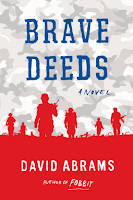Ordinary people in extraordinary times can accomplish the heroic.
Father of Lions: One Man's Remarkable Quest to Save the Mosul Zoo by Louise Callaghan tells the story of the people who worked to save the Mosul Zoo animals under unimaginable circumstances. The privations of wartime, the societal and political shifts under ISIS, and the extraordinary measures taken to extract the animals are vividly rendered.
Abu Laith loved animals. As a boy, he brought home two dogs who became his constant companions, which set him apart in a society that condemned dogs as unclean. He learned everything he could about wildlife from National Geographic and dreamed of creating his own zoo where the animals had open spaces instead of cages.
Upset by the neglect of the zoo animals across the street from his Mosul home, he contacted the distant zoo owner and became the zookeeper. He hand-raised a baby lion he called Zombie. He loved the lions and bears and monkeys and took great pride in their care.
When ISIS took over Mosul and set up camp in the zoo, Abu Laith went into hiding with his family. He fretted over his beloved animals' neglect, but under threat from ISIS was unable to leave his home. He hired a man out of his own pocket to care for the zoo.
And then the Iraq war came.
For over two and a half years, Abu Laith endeavored to keep his beloved animals alive. At the end of the ISIS occupation of the zoo, there were only a few starving animals left. A former government scientist became involved and contacted an Austrian charity that rescued animals. Egyptian veterinarian Dr. Amir risked everything to bring the remaining animals out of Mosul.
Life in Mosul before and during ISIS occupation is central to the story. One of the most difficult scenes involved Abu Laith's wife giving birth--unable to even raise the veil covering her face!
During the war, families squeezed into one room while under bombardment, enduring long hours of boredom and isolation. It was a struggle to find food and dangerous to even prepare it.
After the war, women lifted their unveiled, pale faces to the sun for the first time in years. The streets once again were filled with people. Zombie was repatriated to his native element. And readers rejoice with their reclaimed freedom.
Father of Lions
by Louise Callahan
Forge Books
On Sale: 01/14/2020
$27.99 hardcover; $14.99 ebook
ISBN: 9781250248947



